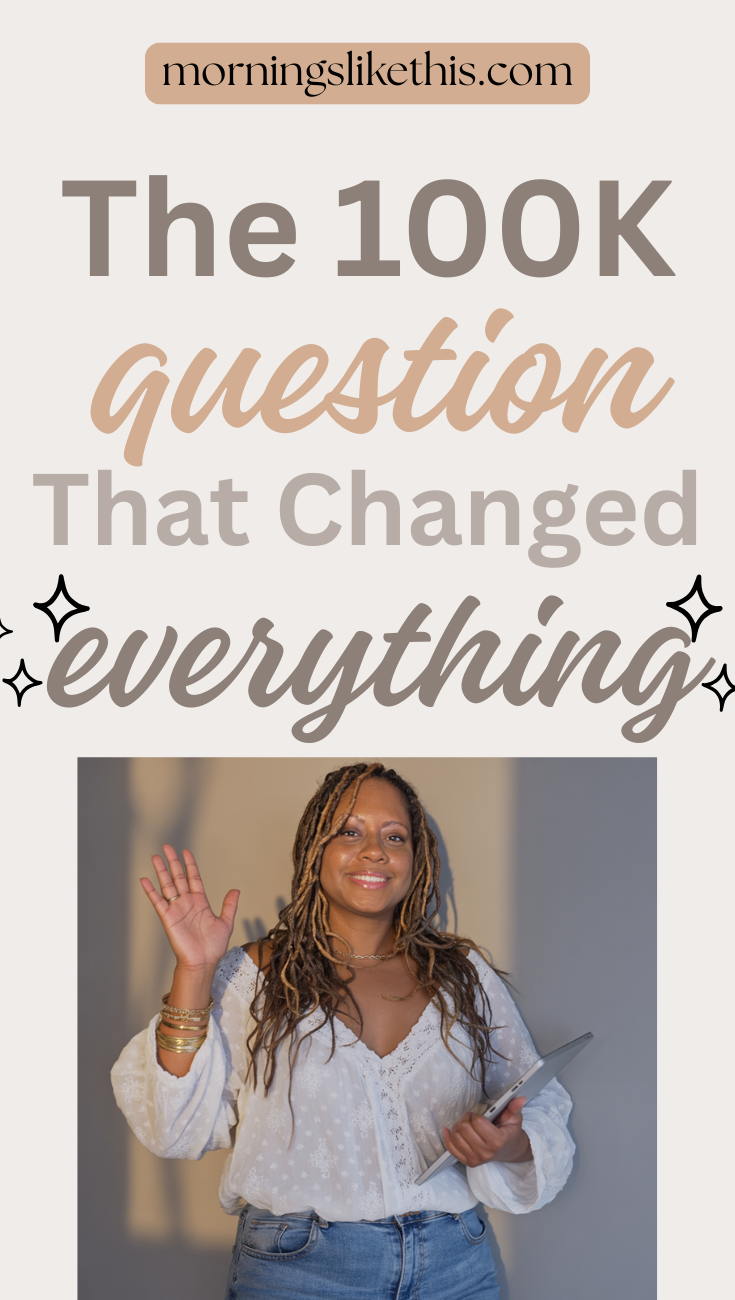Can Black Women and White People Ever Truly Be Friends? A Deep Dive Into Awareness, Ancestry, and Emotional Labor
Hey Friend!
In this manifesto...
We’re not just talking about friendship. We’re talking about truth. About what it means to move through this world as a Black woman with awareness—about history, privilege, community, and the cost of staying asleep.
This post is for the Black woman who is waking up. For the one who recently started learning the true history behind our culture, our struggle, and our sacred legacy—and now finds herself moving differently. Seeing differently. Choosing differently.
Inside, I’m reflecting on what it means to carry this new lens and how it affects every interaction, from white coworkers to unaware Black family members. I’m asking the hard questions: Can a Black woman and a white person truly be friends? Can awareness ever truly bridge that gap? And what do we do with the weight of this knowing?
The Awareness That Changes Everything
Once you start learning who you really are—African descendant, divine, powerful, intentionally miseducated—you can’t unsee the lies.
You stop laughing at surface-level conversations.
You stop explaining yourself in rooms that don’t deserve your brilliance.
You stop assuming people think like you do.
Because they don’t. Especially if they haven’t taken the journey to understand our history and how that history is still actively shaping our present.
Loving The Blog? Your donations help keep things flowing over here. When you donate monthly, you’ll receive a gift, every month, to help you build your blogging business, lean into your beautiful roots & traditions as a black woman, live more intentionally or all three! Click HERE to learn more.
When You Start Noticing the Fog
It’s not just white people who carry the fog of ignorance. It’s also our own—Black folks who have not yet reconnected with their roots or who still measure worth by proximity to whiteness. Being around that energy can feel like swimming upstream. Exhausting.
And I say that with compassion, not superiority. Because not too long ago, I was unaware too. I hadn’t started unlearning. I hadn’t picked up the books. I hadn’t had the breakdowns or the breakthroughs.
But now that I have, I can’t pretend otherwise.
The White Friend Dilemma
Let’s get into it. Can Black women and white people be true friends?
And I don’t mean coworkers who follow each other on IG. I don’t mean white women who say “Yasss queen!” in the comments. I mean true, soul-level friendship.
Would they protect your body if it came down to it?
Would they speak up in a room full of white people when you're not there?
Would they risk their comfort, their relationships, their privilege—for you?
If the answer is “I don’t know,” then the answer is no.
The Fear That Fuels It All
Here’s the only explanation I can come up with for the centuries-long resistance white folks have to Black power and Black liberation:
They’re afraid.
Afraid that if the roles were reversed, we’d do to them what they’ve done to us.
Afraid of the rage we should have.
Afraid we might want payback.
But here’s the thing: Black liberation has never been about revenge. It’s about freedom.
We’re not trying to switch positions. We’re trying to dismantle the whole table.
The Difference Between Kindness and Solidarity
There are “good white people,” sure. Kind ones. Polite ones. But kindness is not the same as solidarity.
Would they lay their body on the line?
Would they hand over the mic, the platform, the opportunity?
Would they see the harm and take action, or just whisper, “That’s so sad”?
Awareness must lead to action. Otherwise, it’s just performance.
A Lesson from Black AF History
I’m currently reading Black AF History by Michael Harriot, and let me tell you: it’s gutting in the best way.
He shares a story about Black children who had to canoe across rivers just to get to school, while white children rode buses—buses paid for with tax money that Black families also contributed to.
That’s the kind of systemic thievery we’re up against. And the kicker? Most white people benefited from this system, even if their hands weren’t directly dirty. And yet, they wonder why we seem “angry.”
Chile.
Can We Ever Be Friends?
So, back to the question.
Can a Black woman and a white person truly be friends?
I don’t have the answer. But I do know that true friendship—real friendship—requires more than matching energy. It requires risk.
If you can’t put your body, your resources, or your voice on the line for me when it counts, we’re not friends.
We’re just familiar strangers.
The Soft, Sacred Work of Unlearning
For my sisters who are newly awakened: Welcome. You’re not crazy. You’re clear. And it’s okay to say no to things that you’re no longer interested in as you navigate your new world.
You may feel lonely. You may be angry. You may wonder if you’ll ever feel “normal” again.
But you’re not alone.
You’re just beginning the sacred work of re-rooting.
Of remembering.
Of reclaiming.
And I’m right there with you.
✨ Let’s keep going together:
➡️ Read Black AF History by Michael Harriot
➡️ Say no to shallow relationships—Black or white
➡️ Re-root in your ancestry, reclaim your divinity and support the blog
Live Pleasurably,
Manifestos You’ll Love!
















DISCLOSURE: Some of the links on this site are affiliate links, which means I may earn a commission if you click through and make a purchase, at no additional cost to you. I only recommend products and services that I use, love, or believe will provide value to my readers. Your support helps keep the content on this site free, and I sincerely appreciate it.